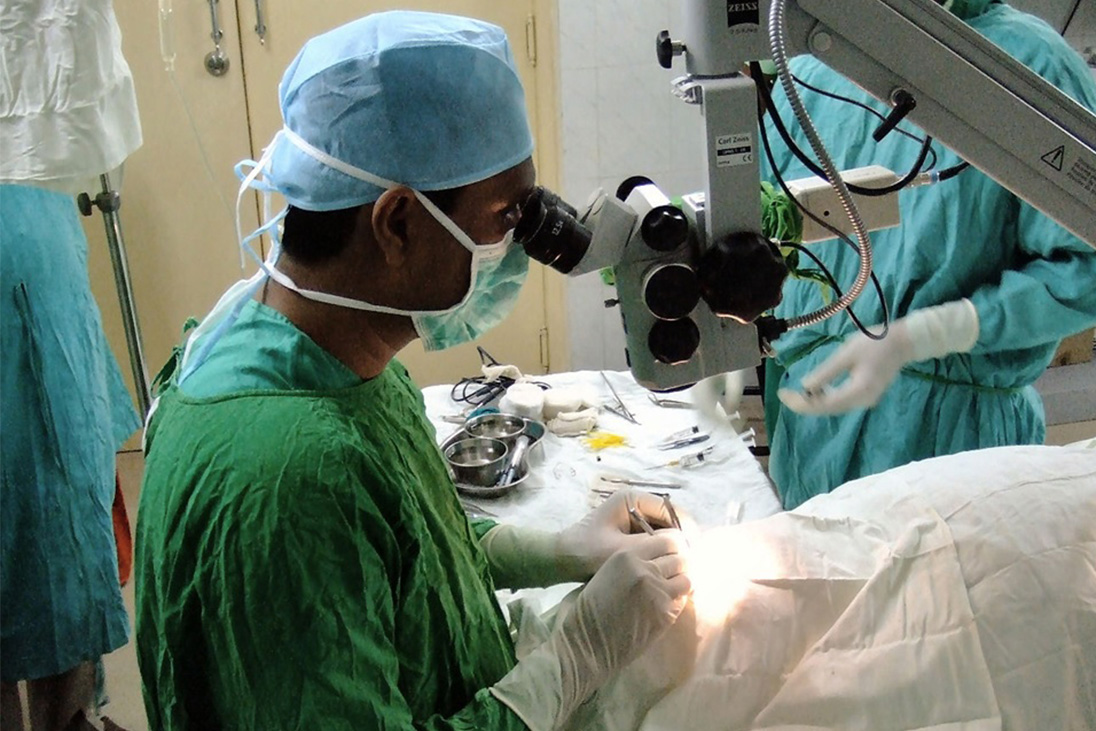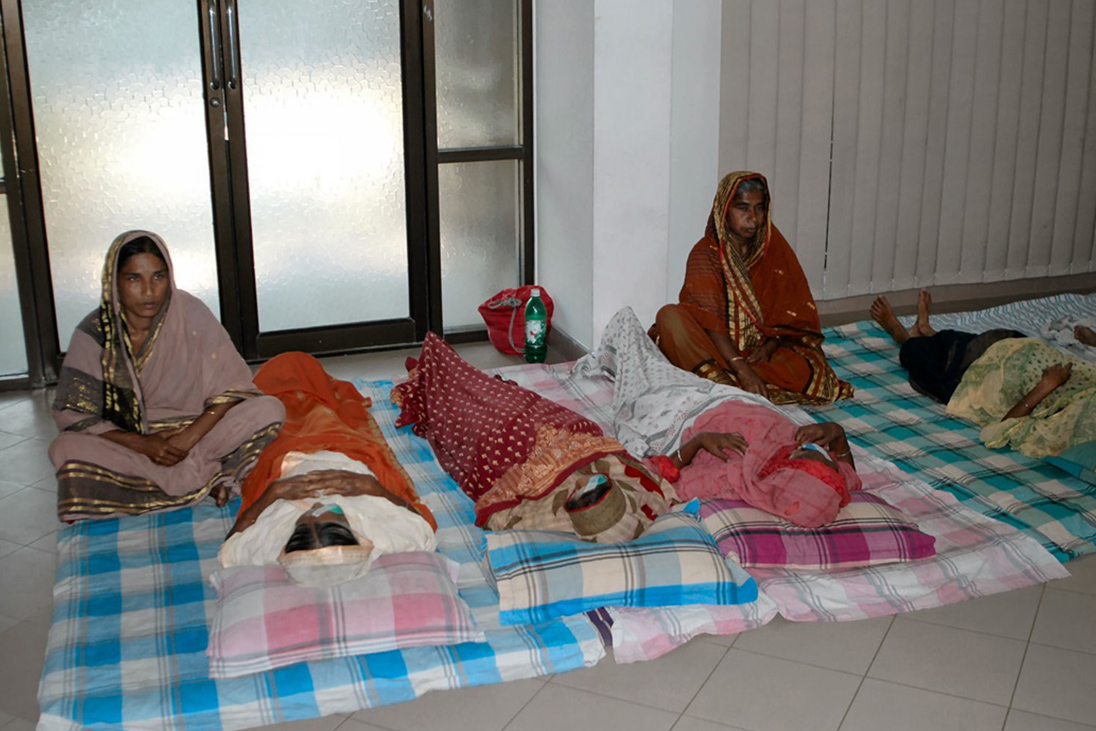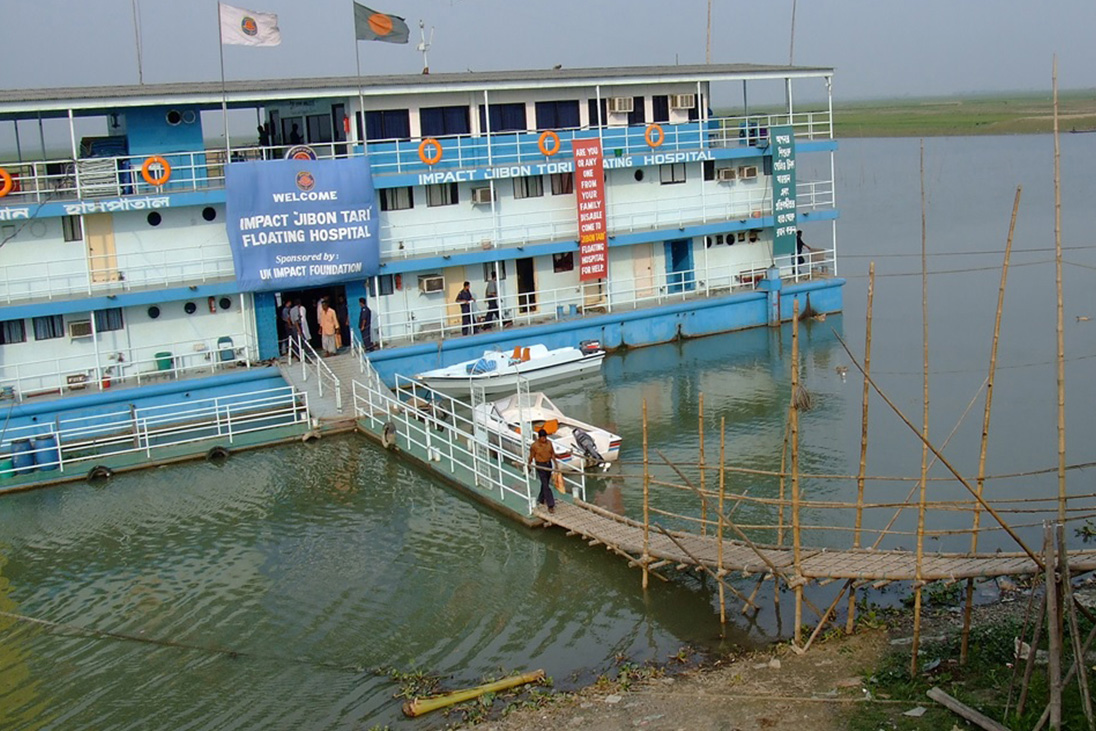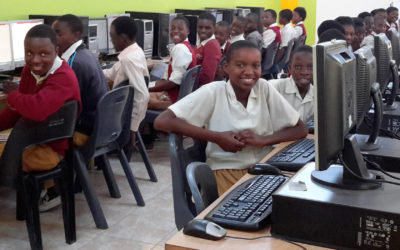He looked about 18-years-old, sitting at the top end of an operating table from early in the morning until late at night.
The patients, already prepared for surgery, walked in every 15 minutes, and walked out 15 minutes later having had their cataracts removed and new lenses implanted into their eyes. The next day they were able to walk home, a journey which could take up to three days.
I asked this young volunteer if he had performed many such operations. His reply was: “About 3,000”. That actually means 3,000 families have been helped just by this one volunteer. Patients who can now play a useful part in family life once more, allowing the other family members to go to school or work.
I was wrong about his age!


3,000 families have been helped just by this one volunteer. Patients who can now play a useful part in family life once more, allowing the other family members to go to school or work.
This is just one of the many, many stories about the IMPACT Foundation, a charity with similar aims to Rotary. Its mission statement states that no-one should become needlessly disabled by disease, lack of knowledge or shortage of medical services. Its motto is: ‘Action today to prevent disability tomorrow”.
I could tell you similar stories of volunteer orthopaedic surgeons restoring mobility by helping people to walk again, ear, nose and throat surgeons providing the gift of hearing or plastic surgeons who restore dignity and humanity to the masses by correcting a variety of deformities.
It really is called making an impact.
In 2005, I was asked by the incoming Rotary in Great Britain & Ireland President, Peter Offer, to act as a liaison officer between Rotary and IMPACT UK.
Initially, this involved joining a party of Rotarians to travel to Bangladesh to see IMPACT at work in their hospitals and on the floating hospital, the Jibon Tari, which is towed up and down the mighty Brahmaputra River and its tributaries.
This amazing hospital is moored for months at a time in different locations as staff go into the hinterland to tell the patients that the ‘Boat of Life’ has arrived. This is taking the hospital to the patient.


The IMPACT foundation believes no-one should become needlessly disabled by disease, lack of knowledge or shortage of medical services.
Word spreads rapidly and patients, often very elderly who are escorted by their grandchildren, come to the hospital to be assessed and, if surgery is necessary, this is performed by a string of volunteers from a host of different countries.
So impressed have I been, that I am now a Trustee of that Foundation.
Rotarians in the UK and Ireland are well aware of IMPACT’s ‘Rainbow Train’ which performs a similar duty in India where there is a massive rail network. The train travels from town to town to help those with no access to surgery.
IMPACT volunteers cover the whole spectrum of medical care, including nutritional and dietary advice. The commonest cause of blindness is through a lack of green vegetables.”
In fact, thanks to the generosity of Great Britain & Ireland Rotarians, the train was recently refurbished. The old carriages were wearing out and the Indian Government donated new carriages, but the inside equipment came thanks to donations from Rotarians.
Without that support, the train would not be functioning, or, even more bluntly, if the hospital was not taken to the patients, the patients would have no medical care at all.
IMPACT volunteers cover the whole spectrum of medical care, including nutritional and dietary advice. The commonest cause of blindness is through a lack of green vegetables.
FACT FILE: IMPACT
• Globally, one in seven people suffer some form of disability. Of these, 80% live in developing countries and one third are children.
• According to IMPACT, most people living with disability were not born disabled, but instead they live with a condition which could have been prevented or reversed.
• Sir John Wilson, who was blind himself, founded IMPACT early in the 1980s as a means of empowering communities with simple, low-cost ways of taking action today to prevent disability tomorrow.
• IMPACT’s solutions are straightforward and cost effective. The charity works with local people, ensuring that the projects meet real needs and give people the skills to help themselves. This avoids dependence on foreign aid.
• Disabled people rank among the poorest of the poor. All too often they lack the opportunities for education or employment. IMPACT believes they are kept in poverty by discrimination. Their work helps to alleviate the poverty.
Midwifery is another crucial area, where the presence of midwives has dropped the incidence of maternal and child mortality by 50%.
Lack of education does not mean lack of ability and the midwives, each with a new bag of goodies, have made a tremendous impact on communities in Bangladesh.
The same story could be repeated for Pakistan, Cambodia, India, Nepal, Sri Lanka and East Africa.


For a small charity, IMPACT punches well above its weight and will celebrate its 35th anniversary next year.
Started by Rotarian Sir John Wilson, who founded The Royal Commonwealth Society for the Blind, (now called Sightsavers), IMPACT is run by a small dedicated staff from an office in Haywards Heath in West Sussex.
Sir John was walking in India one day with Pandit Nehru, the first Prime Minister of India, and they were discussing the variety of avoidable handicaps in the population.
Sir John was blind, but a real man of vision, and he decided something should be done. What is more, IMPACT’s work is not just prophylactic, because if a patient has a disability and IMPACT can do something about it, it will.
Where the presence of midwives has dropped the incidence of maternal and child mortality by 50%.”
For a small charity, IMPACT punches well above its weight and will celebrate its 35th anniversary next year.
When I visited the Jibon Tari she was in her prime but, celebrating her 20th.anniversary this year, a push is now on to upgrade her. Volunteers may well give their time and expertise, but equipment needs to be replaced as it wears out, or needs to be upgraded.
Rotarians in these islands have already made an impact by their support in the past. Hopefully that support will continue in the future.
For more information visit IMPACT website.


























































